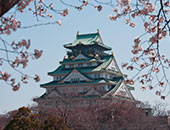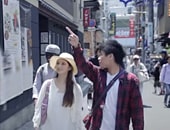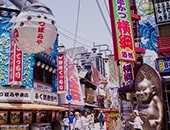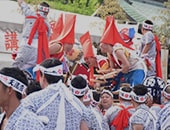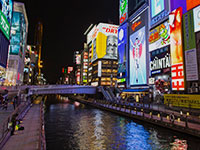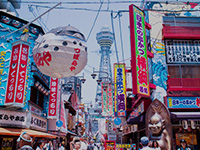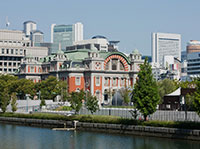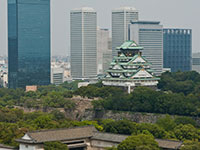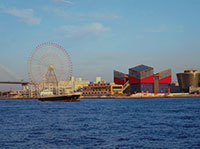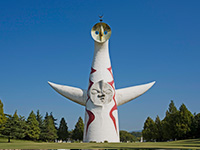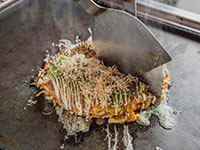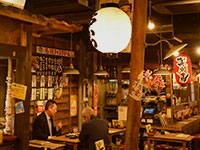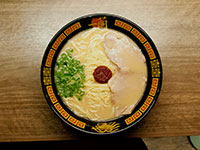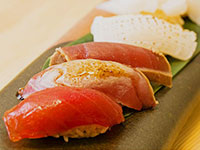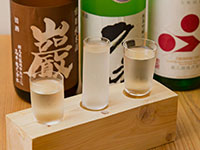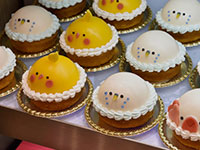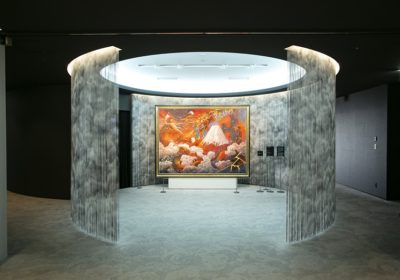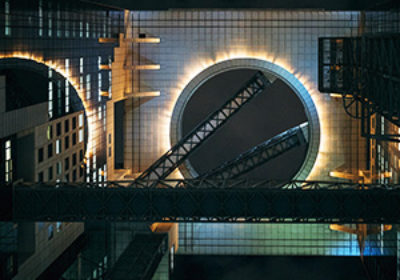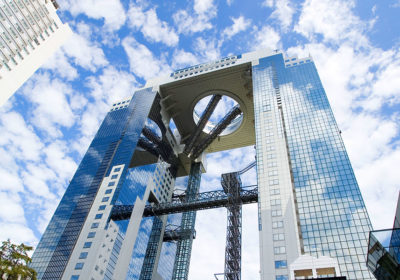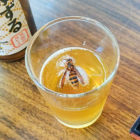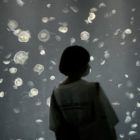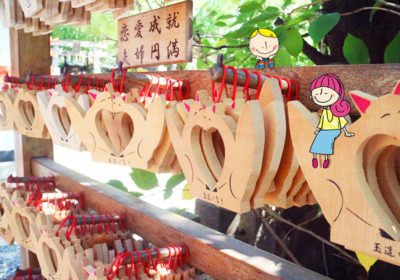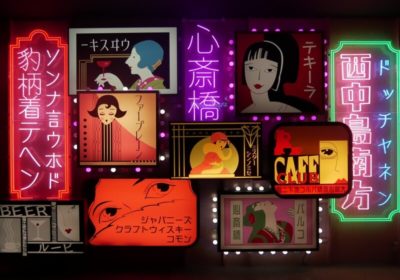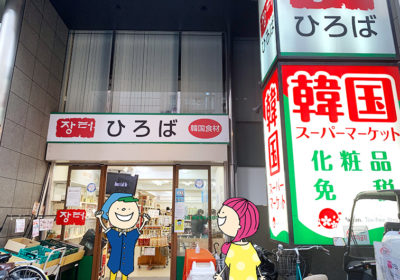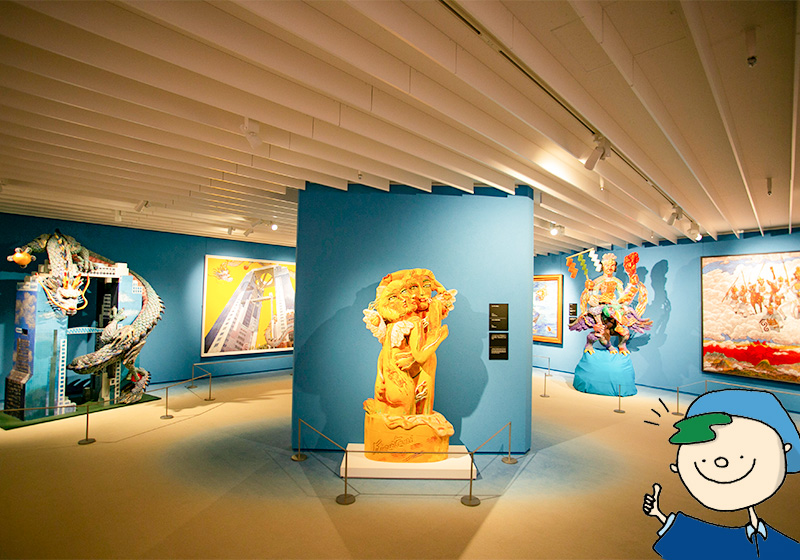

Osaka Bob FAMILY
Art museum in the sky!
Koji Kinutani Tenku Art Museum curator Akeo Takahashi introduces the art and the artist[PR]
Located on the 27th floor of Umeda Sky Building, Tenku Art Museum is full of artwork from painter Koji Kinutani and is arguably Japan’s closest art museum to the sky. It shatters the established idea that museums are for enjoying still art and instead brings forth artwork that is experienced through 3D and virtual reality.
Museum curator Akeo Takahashi explains the allure of Koji Kinutani’s artwork.
Contents
- Fresco and Beyond! Koji Kinutani Continues Pushing the Envelope
- Kinutani-sensei, Attentive and Mindful
- How to Enjoy Kinutani’s Artwork
- Takahashi’s Favorite—”Melody of the Firmament in Italy”
■Fresco and Beyond! Koji Kinutani Continues Pushing the Envelope
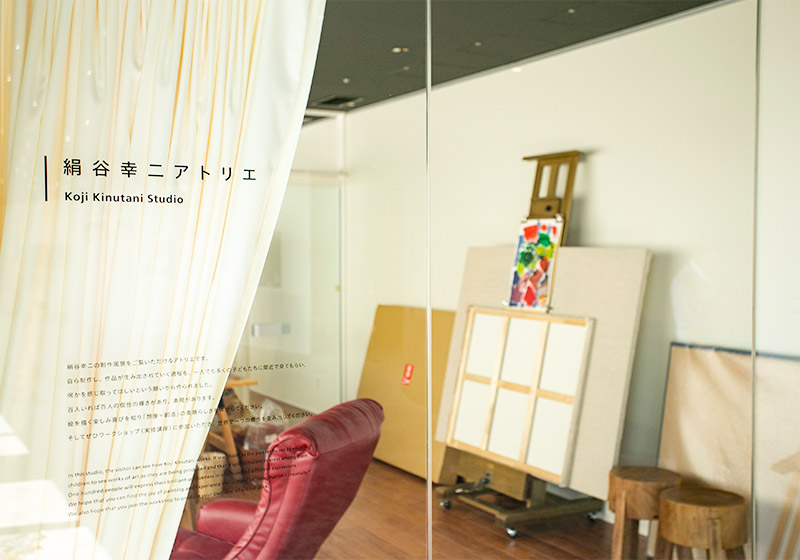 In case you are unfamiliar with Koji Kinutani, he is the leading fresco artist in Japan. At the forefront of Japanese fresco, he rose into the spotlight yet again when his art was featured on advertising posters for the 1998 Nagano Winter Olympics
In case you are unfamiliar with Koji Kinutani, he is the leading fresco artist in Japan. At the forefront of Japanese fresco, he rose into the spotlight yet again when his art was featured on advertising posters for the 1998 Nagano Winter Olympics
When you imagine fresco, perhaps you envision a mural. However, fresco is considered an especially unique form of art because the mural is actually inside the plaster, or rather it melds with the plaster and becomes a part of the wall itself. To make a fresco, pigment is applied to wet plaster and painters must work quickly before the plaster sets. Artists who paint fresco must have a very clear image in their heads before they set to work and it requires a great deal of speed.
I spoke with one of Kinutani’s true fans, museum curator Akeo Takahashi. He began working at the major Japanese real estate and construction company, Sekisui House, in order to become involved with art. Now he works at Tenku Art Museum surrounded by the art that he loves—Kinutani’s masterpieces. And his appreciation for Kinutani goes far beyond his professional role.
“For me, the appeal of Kinutani’s artwork is in his relentless quest to try new things. Usually, artists find their style and then focus deeply in one discipline. However, Kinutani is not bound to one particular style, but instead works in all different mediums, such as sculpture and video art” explains Takahashi.
You can see this fluidity in the many exhibits at Tenku Art Museum, which employ a number of modern technologies.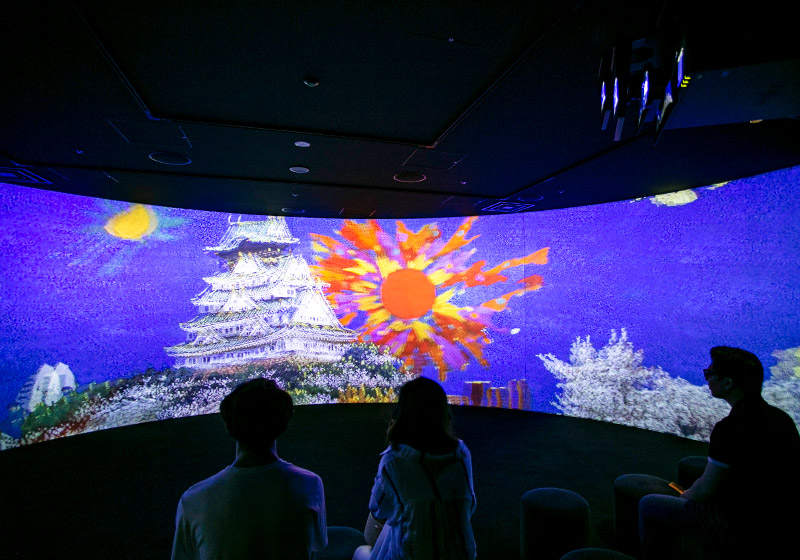
■Kinutani-sensei, Attentive and Mindful
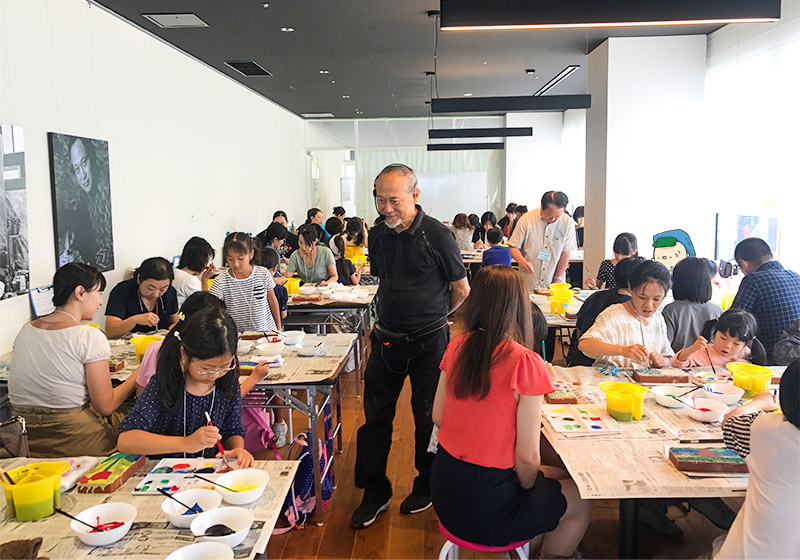 So, now that you’re familiar with Kinutani the artist, let’s look at him as a member of society. From his artwork, you might incorrectly assume that he is extremely bold and audacious. Actually, he is extremely considerate, has a very broad outlook, and listens carefully to others’ opinions. Takahashi thinks that Kinutani’s personality is the most charming thing about him.
So, now that you’re familiar with Kinutani the artist, let’s look at him as a member of society. From his artwork, you might incorrectly assume that he is extremely bold and audacious. Actually, he is extremely considerate, has a very broad outlook, and listens carefully to others’ opinions. Takahashi thinks that Kinutani’s personality is the most charming thing about him.
Kinutani enthusiastically supports education and highly values the time he’s able to spend with children. He holds workshops with school-age children through the Children’s Dream, Art, Academy (a public service organization sponsored by the Japan Art Academy). Children draw freely during the workshops and Kinutani always has encouraging praise to offer. Rather than evaluating the child’s skill, which could hamper their individuality and sense of freedom subsequently discouraging them from drawing, he tries to inspire them. Takahashi reflects on this teaching style, “He really guides them in his unique Kinutani-sensei way.”

▲ Akeo Takahashi, Koji Kinutati Tenku Art Museum curator
■How to Enjoy Kinutani’s Artwork
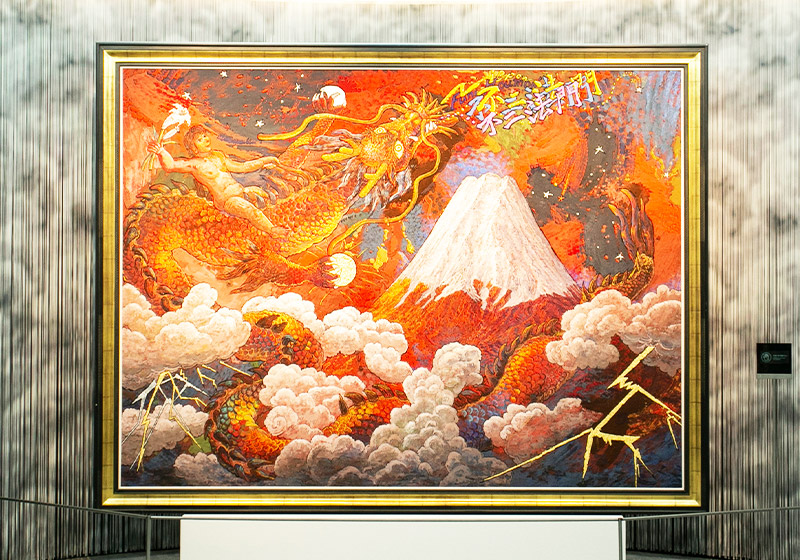 When asked about the museum’s target audience Takahashi replied, “Kinutani-sensei hopes that children and the youth will visit the museum. He wants to pass art and traditional culture onto the next generation. Admission is completely free for elementary school students, so they can come to the museum as many times as they like.”
When asked about the museum’s target audience Takahashi replied, “Kinutani-sensei hopes that children and the youth will visit the museum. He wants to pass art and traditional culture onto the next generation. Admission is completely free for elementary school students, so they can come to the museum as many times as they like.”
So regardless of their age, how should people approach Kinutani’s work? Takahashi explained, “Funihomon (the idea that contradicting thoughts and beliefs are not independent of one another, but are in fact parts of the same thing) is essential to understanding his art. This way of thinking is a recurring theme in his artwork.”
For example, his work often includes juxtaposing images, like the sun and the moon or happiness and anger, in the same piece. “So perhaps that’s a good jumping off point. If you notice something particular in a piece, start looking for its counterpart” advises Takahashi.
This must be a fun access point for children experiencing the artwork.
■Takahashi’s Favorite—”Melody of the Firmament in Italy”
Finally, I’d like to introduce Takahashi’s favorite piece in the museum, “Melody of the Firmament in Italy” (2006). Kinutani created this while reflecting on his time spent studying in Italy. The Italian peninsula is depicted playfully and Takahashi feels that it will pique one’s interest in the region. As you look closely at the painting, you’ll notice seagulls, an owl, and other fine details. Before you know it, you’re transfixed deep inside the painting.
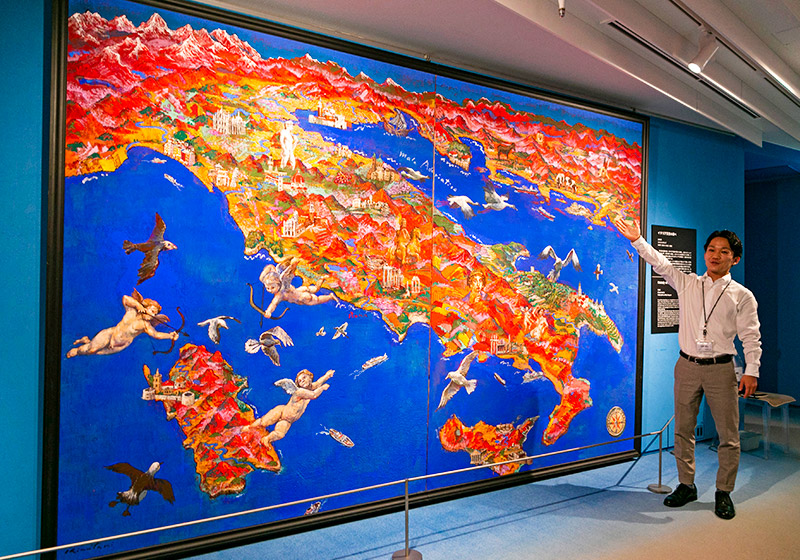
▼View related article
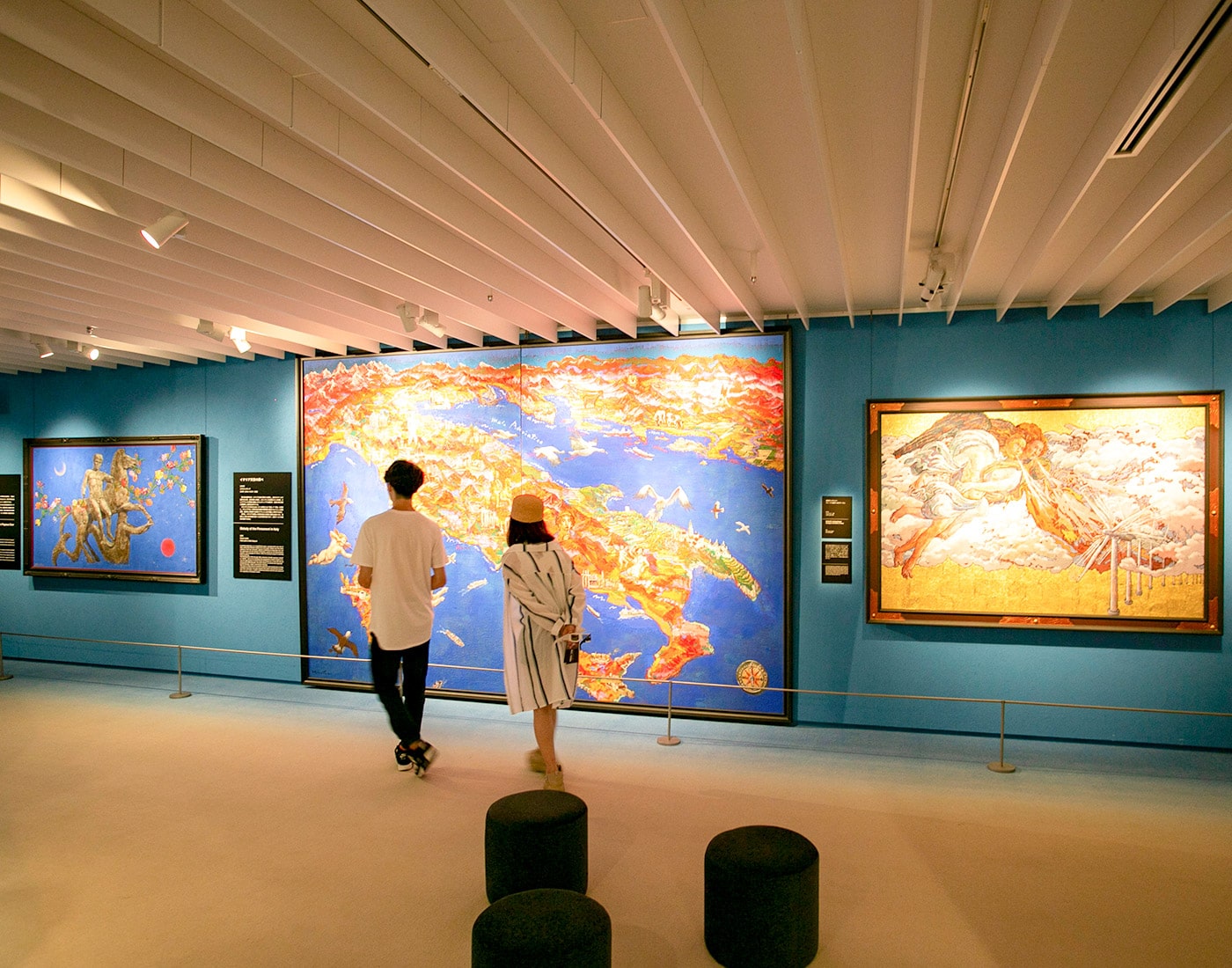 Step into the colorful world of Koji Kinutani
Step into the colorful world of Koji Kinutani

Osaka Bob FAMILY
The contents of this page were current at the time it was posted, but may differ from the present.
Text visible in this map is based on information from Map Tiler and may differ from actual geographical names.



